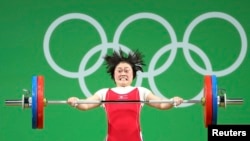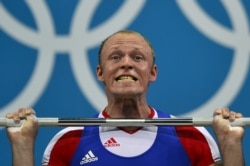A new study published this week in the Journal of Neuroscience suggests weightlifting affects a person’s brain weeks before there is a noticeable change in muscles.
The study, conducted by researchers at New Castle University in northeast Britain, used macaque monkeys, whose brain systems are similar to humans in regard to movement.
The researchers trained the monkeys to pull a weighted handle with one arm by rewarding them with food. Over the course of three months, researchers increased the resistance of a weighted handle week by week. The monkeys completed daily strength training sessions, including 50 weighted pulls (moving the handle at least 4 centimeters).
The experiment revealed that weightlifting strengthens the nervous system through a motor tract called the reticulospinal tract, and this change occurs weeks before any muscle is added.
Newcastle University researcher Isabel Glover, co-author of the study, explained that when people lift weights, they get stronger because the neural input to the muscles increases.
“It’s a few weeks later that the muscles themselves start to get bigger," Glover said.
Professor Stuart Baker, the study’s other co-author, said this change in the nervous system helps weightlifters activate their existing muscles more efficiently. Baker said these neural changes in the brain also have other physiological benefits.
"If we understand the neural mechanisms of strength, then we can start to think about how to help individuals suffering from a loss of strength, such as following a stroke,” he said.

